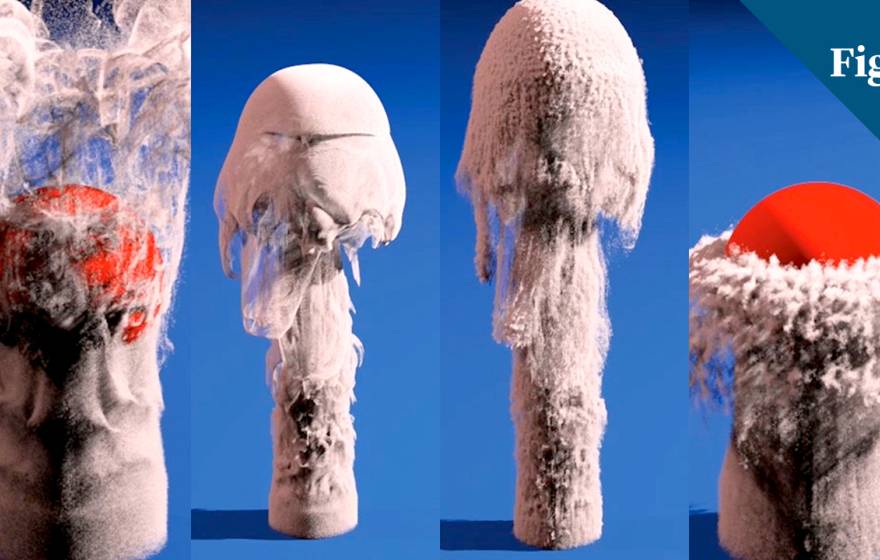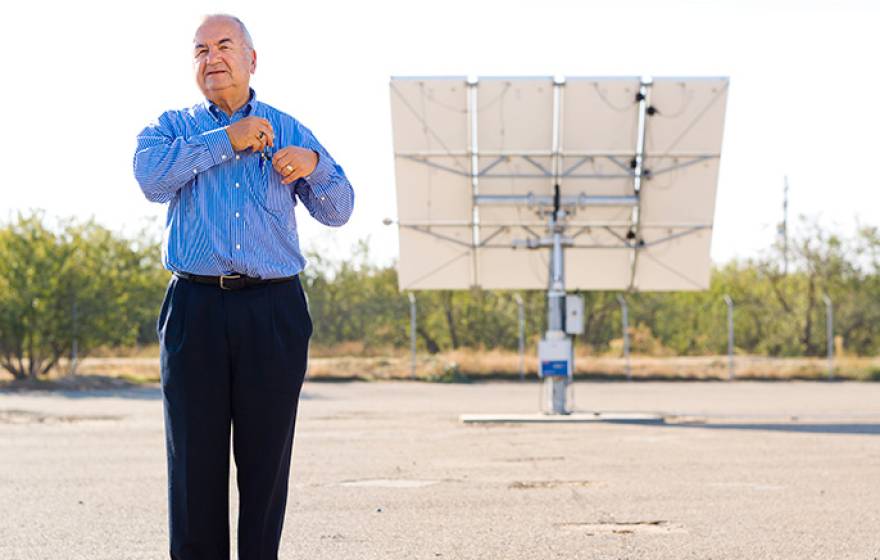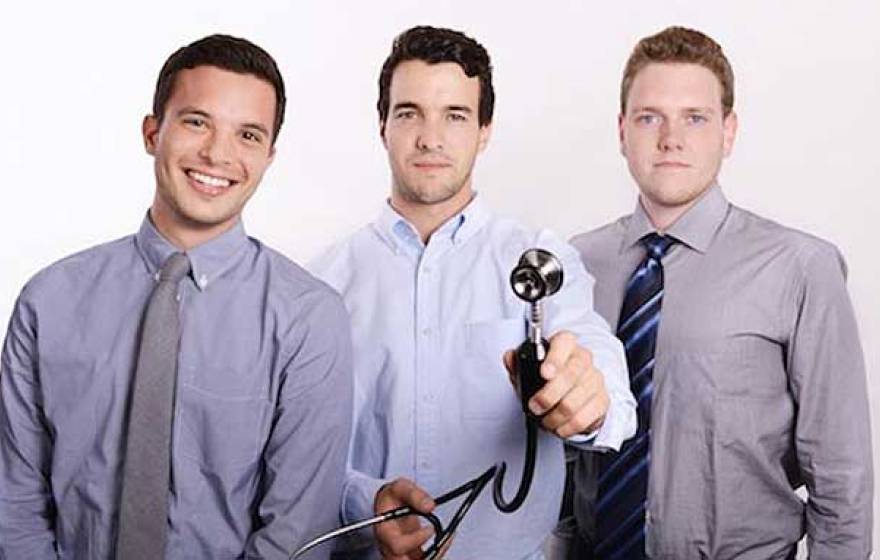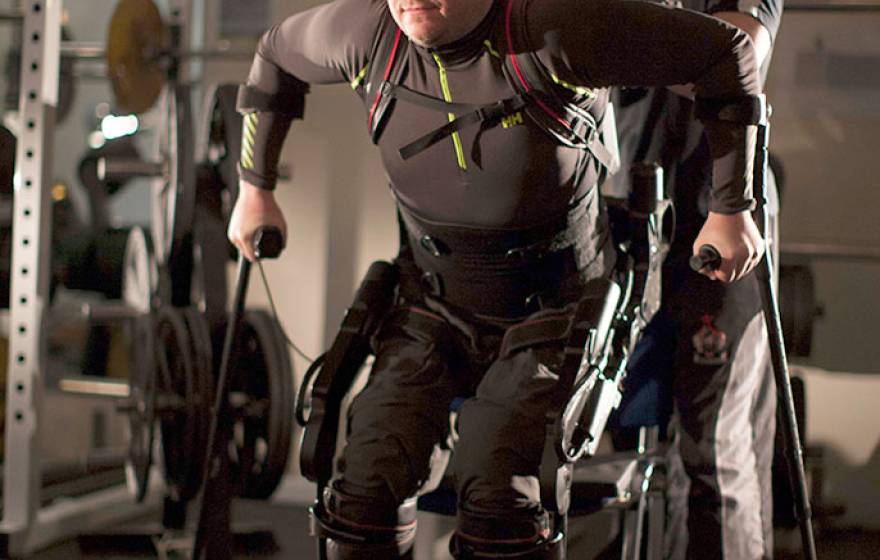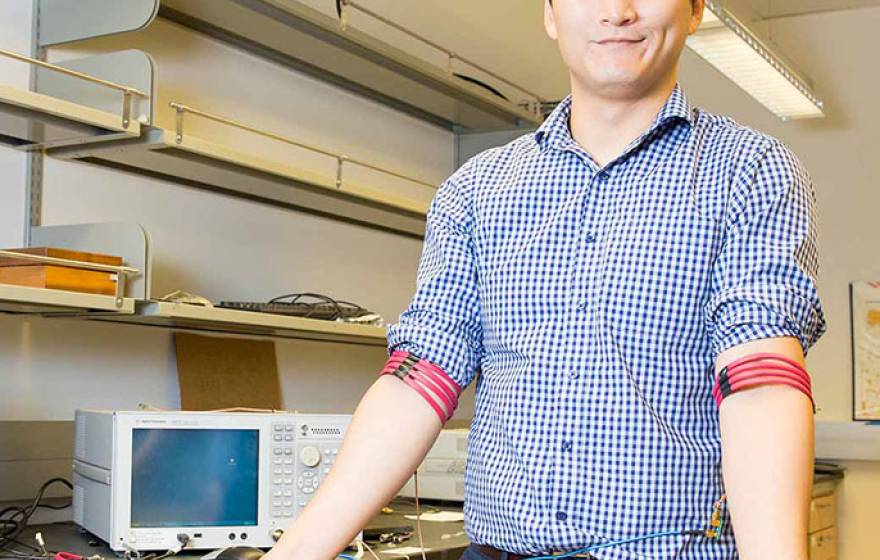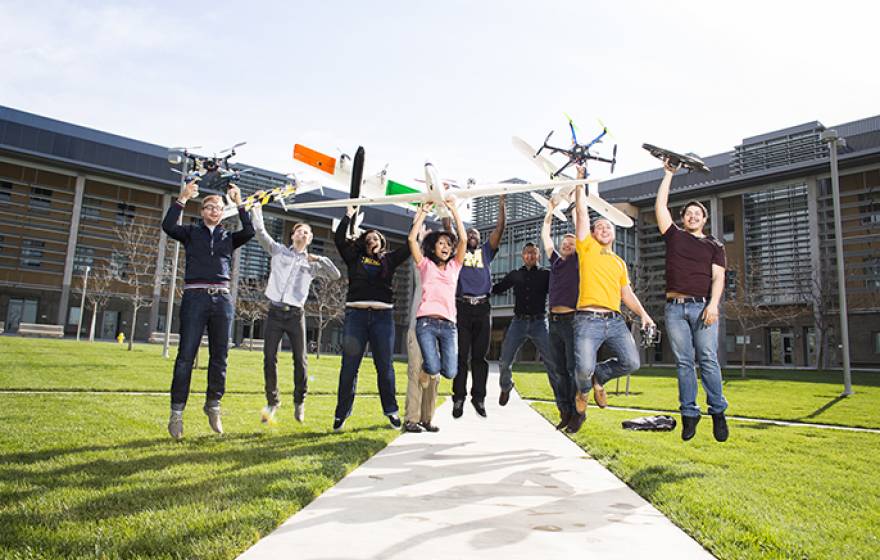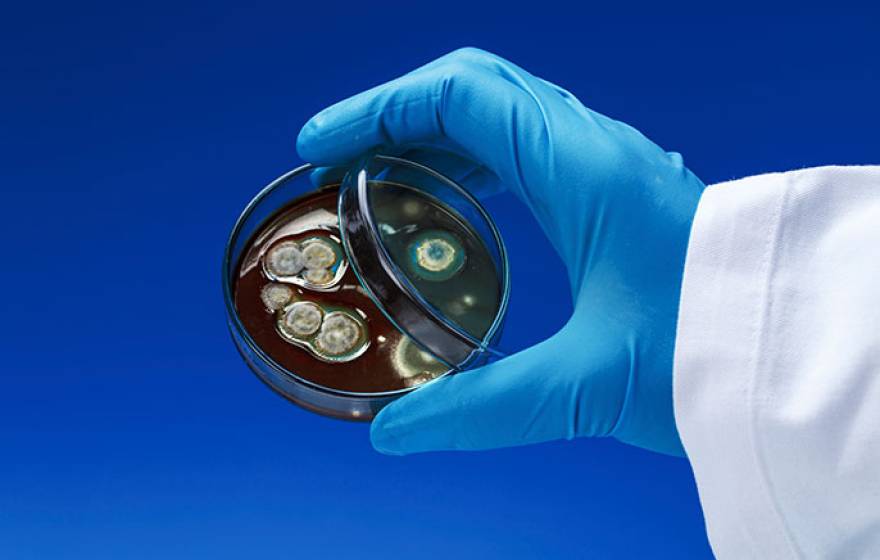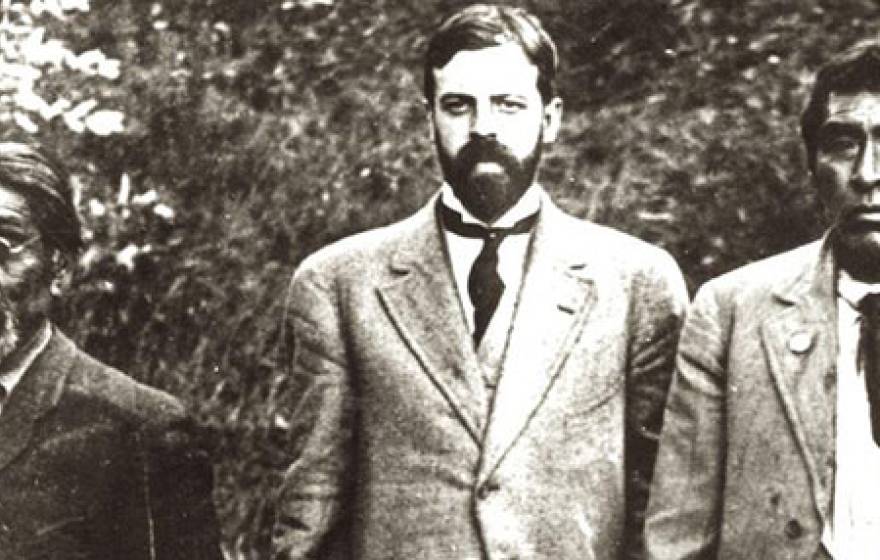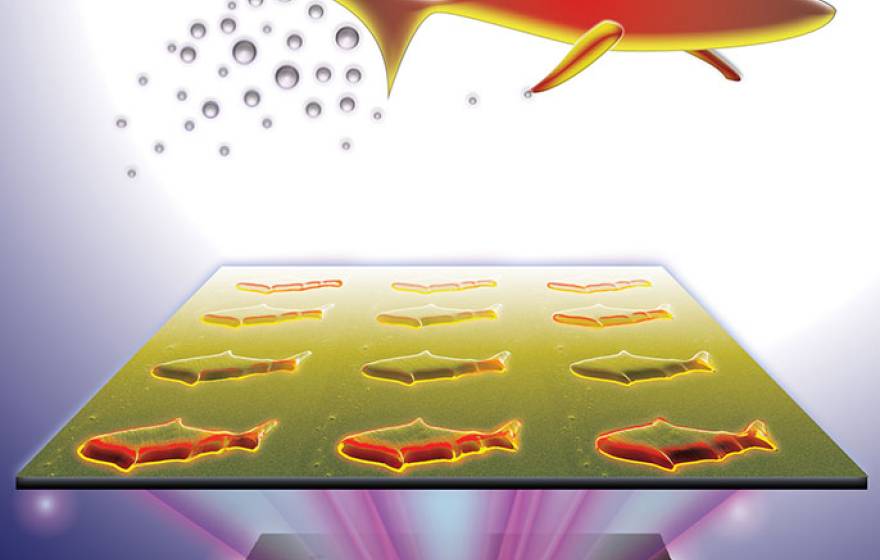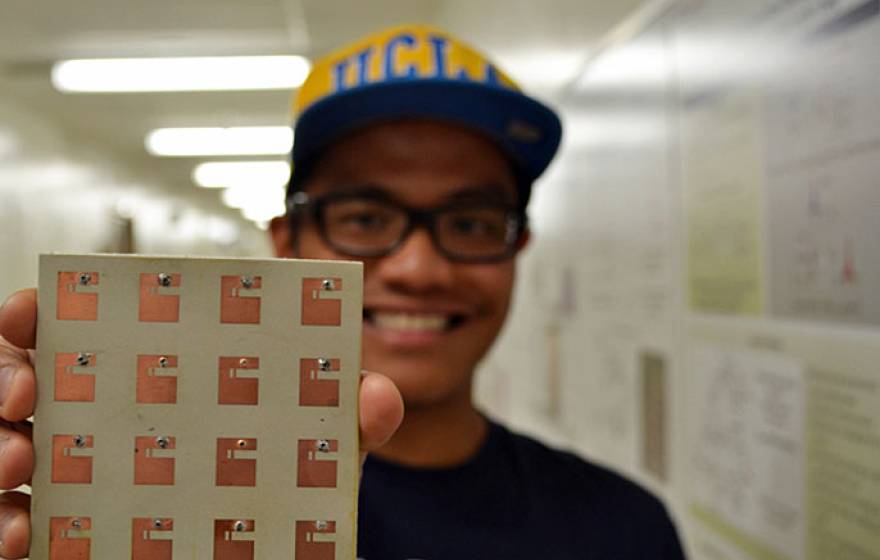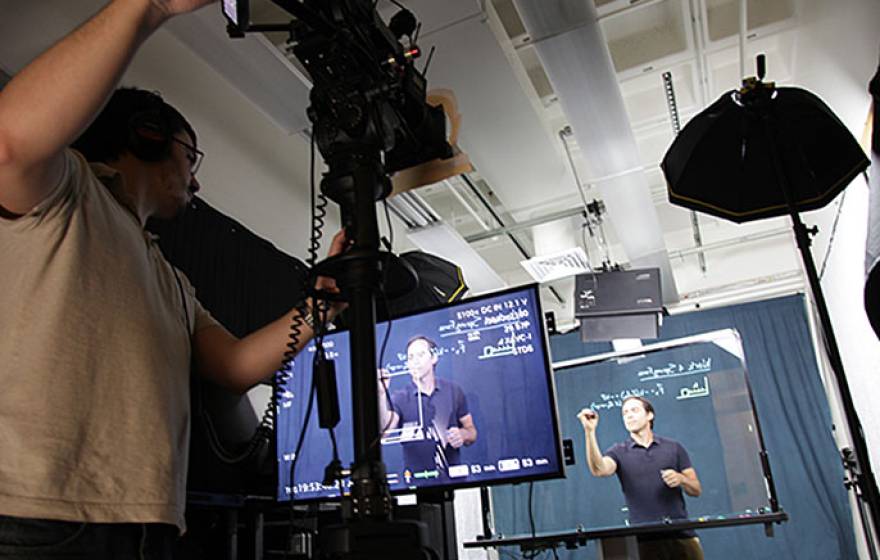Nobody blows things up like Hollywood. Now, with the help of a tool called Wavelet Turbulence, filmmakers can generate realistic swirling smoke and fiery explosions that are more detailed, easier to control and faster to create.
The science behind Hollywood explosions
Sun and salt: how solar tech can help California’s drought
Researchers at UC Merced are turning to an unlikely ally to help solve the problem of water availability for California’s farmlands: the sun.
Alumni startup’s digital stethoscope green-lighted by FDA
Federal clearance sets the stage for unlimited clinical use of the tool by Eko Devices, a Skydeck accelerator-nurtured business.
Solar cells absorb light at 30X the concentration of conventional cells
New solar cells absorb high-energy light at 30 times the concentration of conventional cells.
Completely paralyzed man voluntarily moves his legs
Robotic step training and noninvasive spinal stimulation enable patient to take thousands of steps.
Magnetic fields provide a new way to communicate wirelessly
New technique could pave the way for ultra low power and high-security wireless communication systems.
Drones aid agriculture
UC Merced lab spurs students' use of technology to serve agriculture, environment, health.
DNA guides 3-D printing of human tissue
Technique produces tiny models of human tissue, or ‘organoids,’ that can be used in cancer research and drug screening.
High-tech project will restore recorded Native American voices
Cutting-edge optical scanning technique developed by the Berkeley Lab promises to revitalize these old, fragile recordings.
3-D printed tiny fish do more than swim
Synthetic microfish set the stage for 'smart' microrobots that can detoxify or deliver medications.
New antenna design could aid interplanetary communication
A small yet powerful antenna would allow the Mars rover to communicate directly with Earth, enabling much more data to be sent back and forth.
Ten projects win UC’s 2015 information technology awards
Ten teams representing multiple locations across the University of California won the 2015 Larry L. Sautter Award for using information technology to make university operations more effective and efficient, and to better serve faculty, staff, students and patients.
Systemwide Chief Information Officer Tom Andriola announced the winners today (Aug. 17) at the UC Computing Services Conference in Riverside.
